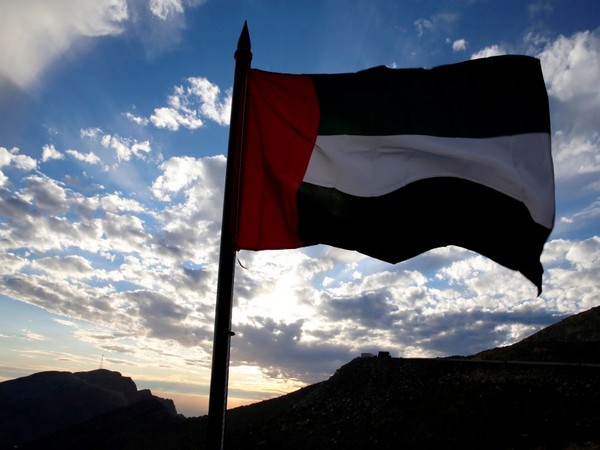Historic Opening of First Arabic Cultural Institute in Milan
The inauguration of the first Arabic Cultural Institute in Milan, Italy by H.H. Sheikh Dr. Sultan bin Muhammed Al Qasimi marked a significant cultural milestone, strengthening connections between the Arab world and Europe. The event received widespread acclaim and extensive media coverage, highlighting Sharjah’s global cultural initiatives.

- Country:
- United Arab Emirates
Dubai [UAE], September 4 (ANI/WAM): The inauguration of the first Arabic Cultural Institute in Milan, Italy, by H.H. Sheikh Dr. Sultan bin Muhammed Al Qasimi, Member of the Supreme Council and Ruler of Sharjah, has garnered widespread acclaim from both Italian and Arab communities, particularly within media and academic circles.
The event received extensive coverage from major media outlets, highlighting Sharjah's initiative to establish a network of cultural institutes in prominent global cities known for their significant contributions to knowledge and creativity. This milestone underscores the emirate's commitment to encouraging cultural exchange and promoting Arabic language education and culture on an international scale.
Prominent Italian newspapers, media stations, and institutions lauded the institute and the contributions of H.H. in building connections between Arab civilisation and various global cultures. They also commended Sheikha Bodour bint Sultan Al Qasimi, Chairperson of the Sharjah Book Authority (SBA), for her vital role in advancing the cultural movement in the UAE and the Arab world while expanding international partnerships. The new institute, operating under the supervision of SBA, is a collaborative effort with the Catholic University of the Sacred Heart and is located within their campus.
Avvenire, one of Italy's most prominent and influential newspapers, featured the headline 'Arab Cultural Institute in Milan: A Bridge Between East and West' on its front page, describing its inauguration as a historic event. Professor Elena Beccalli, Rector of the Catholic University of the Sacred Heart, remarked, 'This era requires hope and coexistence, and the Arabic Cultural Institute embodies our commitment to intercultural dialogue and education for mutual understanding.'
Bishop Paolo Martinelli, Apostolic Vicar of Southern Arabia, praised the Ruler of Sharjah's vision and efforts in promoting cultural appreciation and building bridges that foster dialogue and understanding. 'The Ruler of Sharjah possesses a profound cultural and spiritual insight that motivates his appreciation of civilisations and cultures, which we, as a Catholic community, have witnessed in Sharjah,' he said. He further emphasised the institute's significance, stating, 'Anything that enhances mutual understanding and awareness is essential for building a shared and positive future for the world.'
Corriere della Sera, Italy's most-read newspaper, published an article titled 'An institute for Arab Culture at the Catholic University of the Sacred Heart: A Place for Lessons, Sciences and Publishing, A Bridge for Research and Convergence.
La Repubblica, Italy's second most popular newspaper, celebrated the collaboration between the UAE and Italy to establish an institute for Arab culture at the Catholic University of the Sacred Heart in Milan, which serves as 'A Bridge between the West and Islam and a Space for Dialogue.' Agenzia Nova, an online news and media outlet published a comprehensive report on the institute's mission and vision, emphasising its impact on Italy's cultural landscape and its role in promoting dialogue with Arab culture.
Meanwhile, ansa.it, Italy's leading news agency highlighted that the institute continues the longstanding cooperation between Sharjah and Italy, exemplified by the annual Arabic Language Festival in Milan, which Sharjah supports. The Vatican News, one of Italy's leading media outlets, titled its report 'A Bridge to Arab Culture from the Catholic University,' describing the institute as an open gateway for Italians to explore the beauty of Arab civilisation and its contributions to knowledge, science, and creativity throughout history.
The decision to launch the new institute in Milan was influenced by the city's profound historical, cultural, and economic significance within Europe. Milan, a hub for over half of Italy's publishers and more than 15,000 creative and cultural institutions, provides an unparalleled environment for showcasing Arabic literary heritage and fostering the exchange of creative works, owing to its notable support for the creative industries.
The institute is designed to engage new generations of Italian youth, researchers, students of Arab culture, and expatriate writers. As the first institution in Italy dedicated to managing Arab cultural programmes and policies, it will offer a range of activities. These include Arabic language courses, grants for cultural exchange initiatives, and activities specifically tailored for students, youth, and aspiring writers.
The institute also plans to expand the SBA-sponsored Arabic Language Festival in Milan, featuring poetry recitations, language workshops, and group discussions. Additionally, it will host annual book exhibitions, literary events, interactive workshops, and seminars to foster exchanges between Arab and European cultures. As part of its mission, the institute will facilitate partnerships between Arab and Italian publishers to translate Arabic works into Italian and other European languages. To further promote cultural exchange, it will launch a bilingual literary magazine in Arabic and Italian, featuring works by Arab and European writers. Furthermore, a digital platform will be developed to allow individuals to explore various aspects of Arab culture and invaluable Arabic literature. (ANI/WAM)
(With inputs from agencies.)










